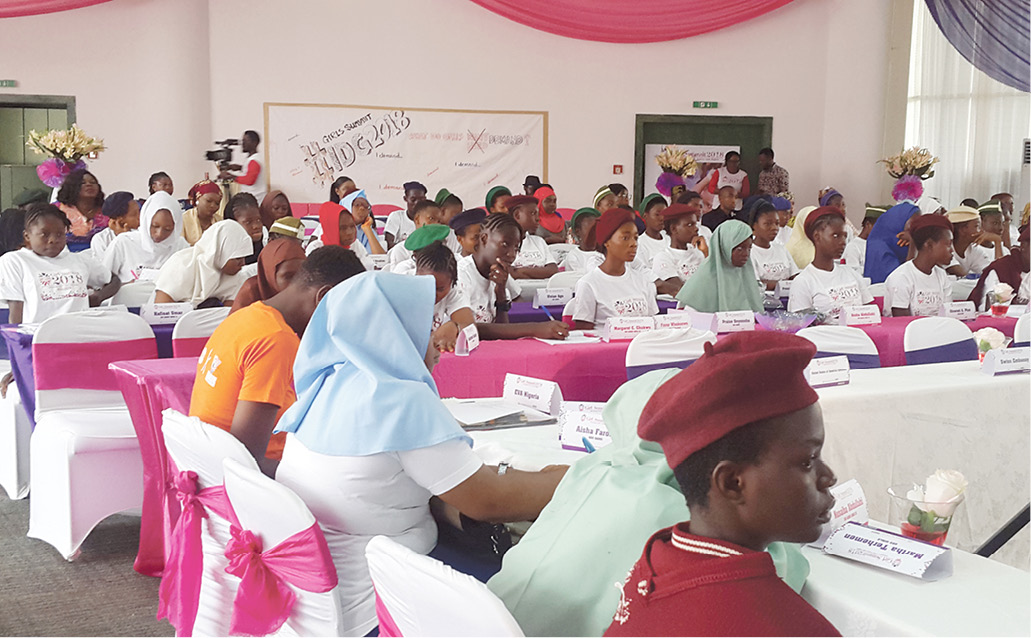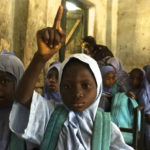In a country where the girl-child remains a victim of the violation of several of her fundamental human rights, including denial of access to education, gender imbalance and varied forms of violence, the nation’s desire for justice, sustainable development, and an inclusive economy that works for all shall only continue to be a dream; a situation that most imperatively makes the girl-child to annually attract global attention. October 11 every year is the International Day of the Girl-Child (IDG).
It would be recalled that on December 19, 2011, the United Nations General Assembly adopted Resolution 66/170 to declare October 11 as the International Day of the Girl Child, to recognize girls’ rights and the unique challenges girls face around the world. The IDG focuses attention on the need to address the challenges girls face and to promote girls’ empowerment and the fulfilment of their human rights. The girl-child deserves this recognition because women and girls represent half of the world’s population and, therefore, also half of its potential.
The theme for this year’s event is ‘Invest in Girls’ Rights: Our Leadership, Our Well-being’. The 2023 event aims to unite adolescent girls with advocates for their rights, including UN leaders, NGOs, businesses, and governments. Adolescent girls have the right to a safe, educated, and healthy life, not only during these critical formative years, but also as they mature into women.
If effectively supported during the adolescent years, girls have the potential to change the world as tomorrow’s workers, mothers, entrepreneurs, mentors, household heads, and political leaders. This is why no investment can be greater than the investment in education for girls.
The future of education in Nigeria: A reformation story
POS operator kidnapped in Kwara
In spite of all these potentials listed in favour of the girl child, global statistics on their condition is incredible. Globally, girls aged 5-14 spend 160 million more hours every day on unpaid care and domestic work than boys of the same age. Adolescent girls account for three in four new HIV infections among adolescents. Nearly one in four married adolescent girls aged 15-19 have experienced physical or sexual violence from an intimate partner at least once in their lifetime.
These global statistics notwithstanding, Nigeria’s narrative about the girl is more frightening. Inequality in almost every sphere of life, denied access to nearly all basic necessities of life, and cultural stereotypes are some of the challenges suffered by the girl in Nigeria.
The United Nations Children’s Fund (UNICEF) recently revealed that 7.6 million girls in Nigeria, many from the northern states, remain deprived of education. UNICEF Nigeria Country Representative, Ms Cristian Munduate, disclosed this while commemorating this year’s IDG at the Government House in Kano. “Nigeria, alarmingly, accounts for 15 per cent of out-of-school children worldwide. Yet, only a mere 9 per cent of the poorest girls have the chance to attend secondary school”, she said. Kano, according to Munduate, currently ranks second in the number of out-of-school girls in Nigeria, revealing a harsh disparity in their access to education.
As a result of the access they had to education, dozens of Nigerian women who are too many to be listed have left footprints, nationally and globally, in different areas of human endeavour. They broke boundaries and barriers posed by stereotypes and exclusion. Indeed, the Nigerian girl when availed with adequate access to education could even do better than the male as an innovator, medical professional, entrepreneur, administrator, academic, or scientist. With unhindered access to education, no form of discrimination, marginalization, or disability would dampen the hopes and potential of the girl.
Religious, traditional, community and youth leaders should all be mobilized to enlighten the public, especially rural populations on the need to invest in the education of the girl. People should be informed that the role of women in nation-building goes beyond the proverbial kitchen. Educating girls is also not absolutely about white-collar jobs. Education, even if it ends at the basic level, helps her to improve her personal hygiene and reproductive health. It eases her well-being in the modern world that is essentially technologically driven.
Government should, as a conscious policy, support girls’ education through free tuition regimes and special scholarship schemes. Education is a tool that does not only create opportunities but actively breaks cycles of poverty.
Meanwhile, UNICEF and the governments of five northern states have launched an initiative, Girls for Girls (G4G), to empower girls and build their “capacity to stand up for themselves.” Empowering women spurs productivity and promotes economic growth. Besides, gender equality and women’s empowerment are central to the achievement of the 2030 Agenda for Sustainable Development as each of the 17 Sustainable Development Goals (SDGs) adopted by world leaders in 2015 is linked to girls.
The greatest asset a nation, community or family can bequest girls is education. Nigeria’s future can only be assured if, as a strategic policy, the country invests in the education of girls, which she necessarily needs to actively influence government policies, business practices and research priorities. No hurdle should, therefore, be allowed to stay in the way of the Nigerian girl to access education. To secure the country’s future, investment by government at all levels in educating girls is a task that must be done.

 Join Daily Trust WhatsApp Community For Quick Access To News and Happenings Around You.
Join Daily Trust WhatsApp Community For Quick Access To News and Happenings Around You.

